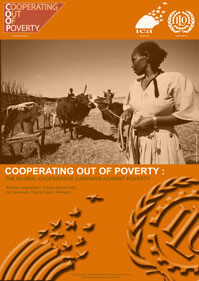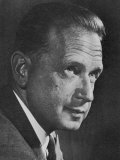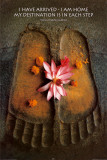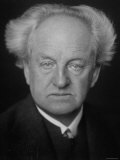|
|
|
|
|
|
|
PEACE & JUSTICE CALENDARS
|
|
|
|
|
|
|
|
|
|
|
|
|
|
|
|
|
|
|
|
|
|
|
|
|
|
|
|
|
|
 |
|
|
|
|
|
|
Edward Everett Hale
b. 4-3-1822; Boston, MA
d. 6-10-1903
Edward Everett Hale was an author and Unitarian minister who advocated abolition and was active in the Chautauqua movement. His short story, The Man Without a Country (1863), is a staple in literature curriculums.
Hale was related to Edward Everett, the other speaker at Gettysburg, and to Nathan Hale, Revolutionary War hero.
Edward Everett Hale quotes ~
• “I am only one, but I am one. I can't do everything, but I can do something. The something I ought to do, I can do. And by the grace of God, I will.”
• “If you have accomplished all that you have planned for yourself, you have not planned enough.”
• “In the name of Hypocrites, doctors have invented the most exquisite form of torture ever known to man: survival.”
• “The making of friends who are real friends, is the best token we have of a man's success in life.”
• “Never bear more than one kind of trouble at a time. Some people bear three - all they have had, all they have now, and all they expect to have.”
• “Make it your habit not to be critical about small things.”
|
|
|
|
|
|
|
Fannie Lou Hamer,
née Townsend
b. 10-6-1917; Sunflower Co., MS
d. 3-14-1977; Mound Bayou, MS
Fannie Lou Hamer was a plain-spoken activist remembered and loved for her use of Bible verses and hymns to demand civil rights.
Fannie Lou Hamer quotes ~
• “Nobody's free until everybody's free.”
• “I'm sick and tired of being sick and tired.”
• “One night I went to the church. They had a mass meeting. And I went to the church, and they talked about how it was our right, that we could register and vote. They were talking about we could vote out people that we didn't want in office, we thought that wasn't right, that we could vote them out. That sounded interesting enough to me that I wanted to try it. I had never heard, until 1962, that black people could register and vote.”
• “When they asked for those to raise their hands who'd go down to the courthouse the next day, I raised mine. Had it high up as I could get it. I guess if I'd had any sense I'd've been a little scared, but what was the point of being scared? The only thing they could do to me was kill me and it seemed like they'd been trying to do that a little bit at a time ever since I could remember.”
|
|
|
|
Dag Hammarskjöld
b. 7-29-1905; Sweden
d. 9-18-1961; Northern Rhodesia (now Zambia)
Diplomat, economist and author Dag Hammarskjöld is the only person to have been awarded the Nobel Peace Prize posthumously (1961). He was the second Secretary-General of the United Nations serving from April 1953 until his death in a plane crash in September 1961 and is the only U.N. Secretary-General to die in office.
• Markings - Dag Hammarskjold
|
|
|
|
Thich Nhat Hanh
b. 10-11-1926; Vietnam
Thich Nhat Hanh is Buddhist monk, teacher, author, poet and peace activist. He was nominated for the Nobel Prize by Martin Luther King, Jr., in 1967.
Thich Nhat Hanh quotes ~
• “Breath is the bridge which connects life to consciousness, which unites your body to your thoughts.”
• “People usually consider walking on water or in thin air a miracle. But I think the real miracle is not to walk either on water or in thin air, but to walk on earth. Every day we are engaged in a miracle which we don't even recognize: a blue sky, white clouds, green leaves, the black, curious eyes of a child – our own two eyes. All is a miracle.”
• “Life can be found only in the present moment. The past is gone, the future is not yet here, and if we do not go back to ourselves in the present moment, we cannot be in touch with life.”
• “If our love is only a will to possess, it is not love.”
• “Hope is important because it can make the present moment less difficult to bear. If we believe that tomorrow will be better, we can bear a hardship today.”
• “We have more possibilities available in each moment than we realize.”
• “Because of your smile, you make life more beautiful.”
• “In order to rally people, governments need enemies. They want us to be afraid, to hate, so we will rally behind them. And if they do not have a real enemy, they will invent one in order to mobilize us.” [comment - perhaps there are those who would demonize “government” in order to overthrow rules that don't allow them total control?]
• Peace Is Every Step: The Path of Mindfulness in Everyday Life
|
|
|
|
|
|
|
Jan de Hartog
b. 4-22-1914; Haarlem, Netherlands
d. 9-22-2002
Playwright, novelist, Quaker, and occasional social critic Jan de Hartog is noted for his seafaring stories. His first novel Hollands Glorie (Holland's Glory), published just days before the Nazi invasion of the Netherlands, brought him under the ire of the Gestapo.
His experiences in WWII eventually lead him to pacifism. One of his most notable books was The Peaceable Kingdom: An American Saga (1972) about the lives of George Fox and Margaret Fell, for which he was nominated for a Nobel Prize.
Jan de Hartog quote ~
• “Do not commit the error common among the young, of assuming that if you cannot save the whole of mankind you have failed.”
|
|
|
|
Gerhart Hauptmann
b. 11-15-1862; Silesia
d. 6-6-1946; Poland
Dramatist Gerhart Hauptmann, the 1912 Nobel Prize for Literature Laureate, is the author of the 1892 play “The Weavers”, about the labor uprising of weavers in Silesia.
FYI - Artist Kathe Kollwitz was inspired by Hauptmann's The Weavers, to produce a cycle of etchings expressing the workers' misery, hope, courage, and, eventually, doom.
Gerhart Hauptmann quotes ~
• “Poetry evokes out of words the resonance of the primordial world.”
• “It was cryin' more than breathin' with me from the time each poor little thing come into the world till death took pity on it.” The Weavers
• “And, when one knows things of that kind as I know them now – believe me – one can find no rest. A simple little piece of soap, which makes no one else in the world think of any harm, even a pair of clean, well-cared for hands are enough to embitter one thoroughly.” Before Dawn
• “Life is too short to read bad books.”
• The Dramatic Works of Gerhart Hauptmann
|
|
|
|
Vaclav Havel
b. 10-5-1936; Prague, Czechoslovakia
d. 12-18-2011; Vilcice
Playwright, essayist, and dissident Vaclav Havel as a leading figure in the “Velvet Revolution” of 1989. He was also the last president of Czechoslvakia and the first president of the Czech Republic (1993-2003).
Vaclav Havel quotes ~
• “Truth and love must prevail over lies and hate.”
• “Hope is a state of mind, not of the world. Hope, in this deep and powerful sense, is not the same as joy that things are going well, or willingness to invest in enterprises that are obviously heading for success, but rather an ability to work for something because it is good.”
• “Anyone who takes himself too seriously always runs the risk of looking ridiculous; anyone who can consistently laugh at himself does not.”
• “Genuine politics – even politics worthy of the name – the only politics I am willing to devote myself to – is simply a matter of serving those around us: serving the community and serving those who will come after us. Its deepest roots are moral because it is a responsibility expressed through action, to and for the whole.”
• “The salvation of this human world lies nowhere else than in the human heart, in the human power to reflect, in human meekness and human responsibility.”
• “Lying can never save us from another lie.”
• “Even a purely moral act that has no hope of any immediate and visible political effect can gradually and indirectly, over time, gain in political significance.”
• “I really do inhabit a system in which words are capable of shaking the entire structure of government, where words can prove mightier than ten military divisions.”
|
|
|
|
Lee Hays
b. 3-14-1914; Little Rock, AR
d. 8-26-1981; Croton-on-Hudson, NY
Folk-singer and songwriter Lee Hayes, who is best known for singing bass with The Weavers was concerned with overcoming racism, inequality, and violence in society.
Hays wrote or co-wrote “Wasn't That a Time?”, “If I Had a Hammer”, and “Kisses Sweeter than Wine”, which became Weavers' staples. He also familiarized audiences with songs of the 1930s labor movement, such as “We Shall Not be Moved”.
FYI - His ashes were mixed with his compost pile, in accordance with his wishes.
Lee Hayes quotes ~
• “Every book that was considered unfit for children to read was marked with a black rubber stamp. So I'd go through the stacks and look for these black stamps. Always the very best books. they weren't locked-up books, just books that would not normally issued to children — D. H. Lawrence, a number of European novels. Reading those books was like doors opening. Don't forget that the fundamentalist South was a closed, fixed society. The world was made in six days; everything was foreordained and fixed in the universe. . . . This was the time of the Great Depression . . . the whole country was in the grip of a terrible sickness, which troubled me as it did everyone else. And I didn't understand it until I started reading Upton Sinclair and the little mag[azines]. . . Somewhere along in there I became some kind of Socialist, just what kind, I have never figured out.”
|
|
|
|
|
|
|
previous page | top | next
peace & justice activists list | a | b | c | d | e | f | g |
HA | He-Ho | Hu | i-j | k | l | m | n | o | p | r | s | t | u-v | w | x-y-z
|
|
I have searched the web for visual, text, and manipulative curriculum support materials - teaching posters, art prints, maps, charts, calendars, books and educational toys featuring famous people, places and events - to help teachers optimize their valuable time and budget.
Browsing the subject areas at NetPosterWorks.com is a learning experience where educators can plan context rich environments while comparing prices, special discounts, framing options and shipping from educational resources.
Thank you for starting your search for inspirational, motivational, and educational posters and learning materials at NetPosterWorks.com. If you need help please contact us.
|
|
|


























